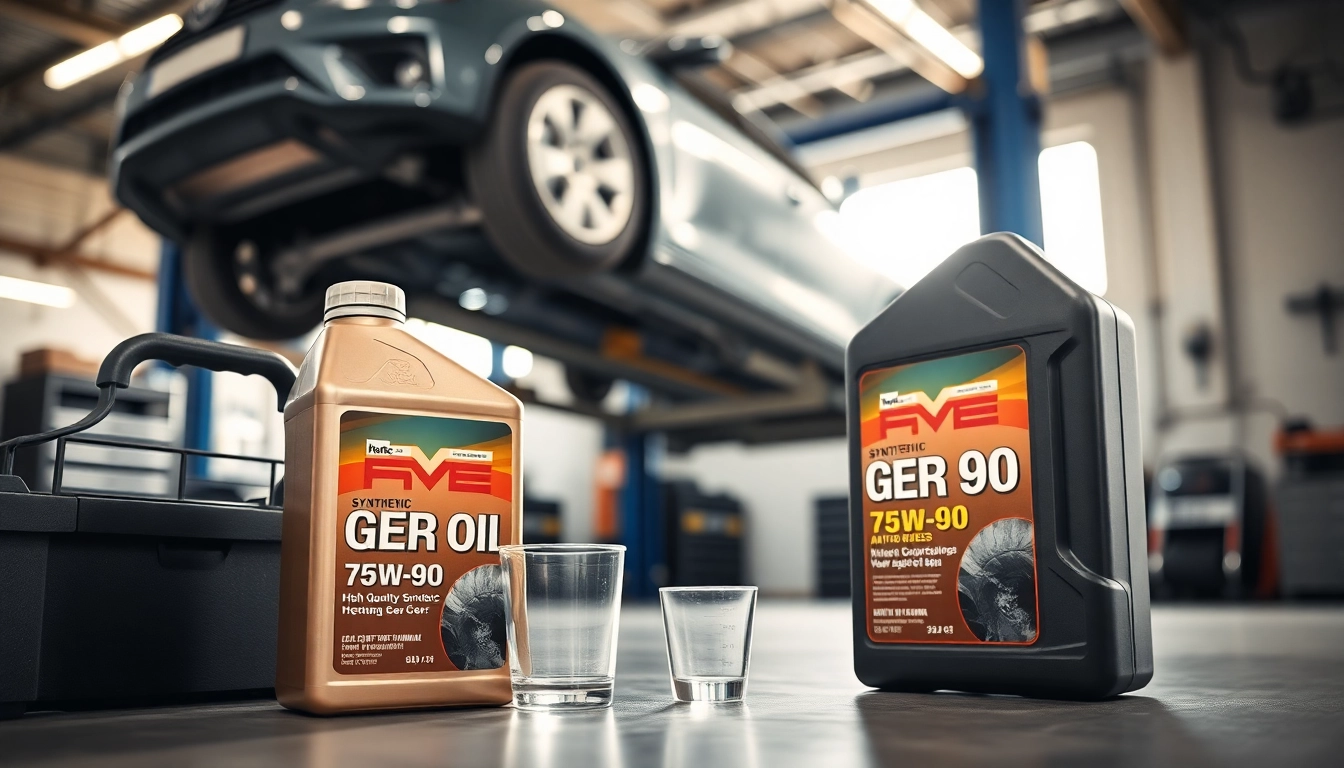Understanding Synthetic Gear Oil 75W-90
Synthetic gear oil, particularly synthetic gear oil 75w90, is increasingly recognized for its superior lubrication and protective qualities in various automotive applications. This article explores the fundamental aspects of synthetic gear oil, emphasizing its benefits, applications, and best practices for use.
What is Synthetic Gear Oil?
Synthetic gear oil is a lubricant specifically engineered for use in gear systems, including manual transmissions, differentials, and transfer cases. Unlike conventional gear oils derived from crude oil, synthetic gear oils are chemically synthesized from high-quality base oils, offering enhanced performance characteristics.
75W-90 refers to the viscosity of the oil, indicating how it behaves at different temperatures. The first number (75) represents the oil’s viscosity at low temperatures, ensuring adequate flow and protection during cold starts. The second number (90) describes its viscosity at higher operating temperatures, indicating its ability to maintain consistency and lubrication under stress. Together, these factors make 75W-90 synthetic gear oil ideal for various conditions, particularly where extreme pressures and shock loading are common.
Benefits of Using Synthetic Gear Oil 75W-90
The benefits of using synthetic gear oil 75W-90 are abundant, impacting performance, durability, and overall vehicle efficiency:
- Superior Lubrication: Synthetic gear oils have been designed to provide a thinner, more effective lubrication layer than conventional oils, reducing wear and tear on gears.
- Enhanced Temperature Stability: These oils maintain their viscosity across a broader temperature range, preventing breakdown under heat and ensuring consistent performance.
- Reduced Friction: Lower friction coefficients result in less energy loss, contributing to improved fuel efficiency over time.
- Longer Oil Change Intervals: Synthetic gear oils often last longer between changes, allowing for extended service intervals without compromising vehicle performance.
Applications of Synthetic Gear Oil 75W-90
Synthetic gear oil 75W-90 is versatile and can be used in various automotive applications:
- Manual Transmissions: It provides optimal protection and smooth shifting in manual transmission systems.
- Differentials: Designed to lubricate both open and limited-slip differentials, helping maintain performance under varying drive conditions.
- Transfer Cases: Essential for four-wheel drive systems where torque and power transfer demands are higher.
Comparing Synthetic Gear Oil with Conventional Options
Performance Differences
The performance gap between synthetic gear oil and conventional gear oil is substantial. Synthetic oils typically deliver:
- Better Load Carrying Ability: Thanks to a higher film strength, synthetic oils can withstand greater pressures without breaking down.
- Improved Flow in Extreme Conditions: Synthetic oils flow better in colder temperatures, reducing friction during start-ups.
- Greater Resistance to Oxidation: They are less prone to thermal and oxidative degradation, leading to longer service life.
Cost-Effectiveness Over Time
While synthetic gear oils like 75W-90 may have a higher upfront cost compared to conventional options, their advantages in longevity and performance can make them more cost-effective in the long run. Users can expect fewer oil changes and improved fuel efficiency, translating to savings over time.
Environmental Advantages
Synthetic gear oils often have a lower environmental impact since they can be formulated with more eco-friendly processes and materials. Their longer lifespans reduce the frequency of disposal and waste, contributing to a smaller ecological footprint.
How to Choose the Right Synthetic Gear Oil 75W-90
Reading Labels and Product Specifications
Choosing the right synthetic gear oil requires an understanding of product labels and specifications. Look for any industry certifications (such as GL-5 for gear oils) and viscosity ratings that match your vehicle’s requirements. Pay attention to the additive package mentioned on the label, as it can significantly affect performance.
Identifying Compatibility With Your Vehicle
Always refer to your vehicle’s owner manual for specifications regarding gear oil. This will often detail the required viscosity and whether synthetic oils are recommended or required. Compatibility ensures that the oil will perform optimally and won’t cause damage to mechanical components.
Common Pitfalls to Avoid
When selecting synthetic gear oil, avoid these common pitfalls:
- Ignoring Viscosity: Using the wrong viscosity can lead to insufficient lubrication and increased wear.
- Overlooking Additives: Some synthetic oils come with additives that enhance performance (like friction modifiers), which are essential for specific applications.
- Mixing Oils: Mixing different types of oil (synthetic with conventional) can dilute the quality of the synthetic oil, leading to performance issues.
Changing Gear Oil: Best Practices
Tools You’ll Need
To change your gear oil efficiently, you will need the following tools:
- Wrench set
- Oil catch pan
- Funnel
- New synthetic gear oil
- Rags for cleanup
Step-by-Step Guide to Changing Gear Oil
- Begin by warming up your vehicle slightly to thin the oil, allowing it to drain more easily.
- Locate the drain plug and remove it, letting the old oil drain completely into the catch pan.
- Once drained, replace the drain plug and tighten it securely.
- Using a funnel, pour the new synthetic gear oil into the fill hole until it reaches the recommended level.
- Reattach the fill cap, ensuring it is properly sealed.
- Dispose of the old oil at a recycling facility or an auto parts store.
When to Change Your Gear Oil
Changing gear oil should follow the manufacturer’s recommendations, typically every 30,000 to 60,000 miles for synthetic products, depending on driving conditions and habits. Additionally, consider changing the oil if you notice unusual noises, overheating, or if the oil appears contaminated.
Common Questions About Synthetic Gear Oil 75W-90
What Makes 75W-90 Different from Other Gear Oils?
75W-90 gear oil is specifically formulated to provide excellent lubrication for both manual transmissions and differentials. Its unique viscosity characteristics allow it to perform effectively in extreme temperature conditions, making it ideal for high-performance and variable driving conditions.
How Often Should You Change Synthetic Gear Oil?
While the general recommendation is to change synthetic gear oil every 30,000 to 60,000 miles, this can vary based on factors such as the type of vehicle, driving conditions, and how well the vehicle is maintained. Regular checks of the oil’s appearance and consistency can be beneficial.
Can I Mix Synthetic and Conventional Gear Oils?
While it is technically possible to mix synthetic and conventional gear oils, doing so is not advisable. Mixing can diminish the performance of the synthetic oil and compromise lubrication effectiveness, ultimately harming the gearbox.



